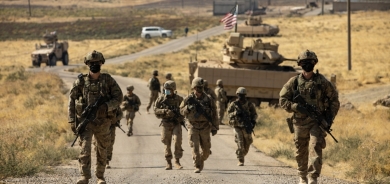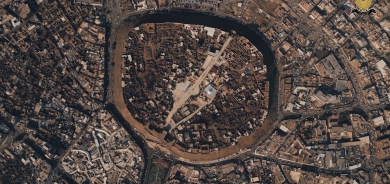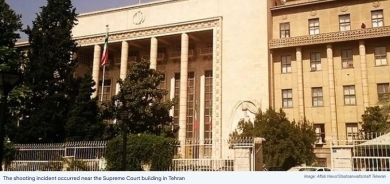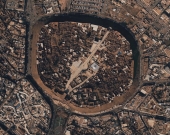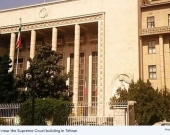Mohammed Morsi faces Egypt terrorism charges

Prosecutors said Mr Morsi had formed an alliance with the Palestinian militant group Hamas and Lebanon's Hezbollah.
Thirty-five others, including former aides and leaders of the Muslim Brotherhood, have also been charged.
Since being deposed by the military in July, Mr Morsi has already gone on trial for inciting murder and violence.
The new charges carry the death penalty. Prosecutors describe the new charges as "the biggest case of conspiracy in the country's history".
Human rights organisations have expressed concern over whether Mr Morsi will be able to get a fair trial, the BBC's Orla Guerin reports from Cairo.
Mr Morsi's supporters say the prosecutions are politically motivated, something the military-backed government denies, our correspondent adds.
He is one of thousands of Brotherhood members to have been detained in a crackdown portrayed by officials as a struggle against terrorism.
Hundreds of people have also been killed in clashes with security forces.
'Terrorist plan'
Mr Morsi and the other defendants, including the Brotherhood's general guide Mohammed Badie and his two deputies, have now been charged with revealing state secrets to a foreign organisations, sponsoring terrorism, and carrying out military training and other acts that undermined Egypt's stability and independence.
Prosecutors allege that the Brotherhood had prepared a "terrorist plan" that included an alliance with Hamas, the Islamist group that governs Gaza, and Hezbollah, a powerful Lebanese Shia Islamist movement.
Several of the defendants, including Mr Morsi's former chief of staff Essam Haddad, were also reportedly accused of giving state secrets to Iran's Revolutionary Guards.
The prosecutors also implicated the Brotherhood in the surge in attacks on the security forces since Mr Morsi's overthrow, most of which have taken place in the Sinai peninsula and been claimed by jihadist militants.
The violence was intended to "bring back the deposed president and to bring Egypt back into the Muslim Brotherhood's grip", they claimed.
Last month, Mr Morsi went on trial on charges of incitement in connection with clashes between his supporters and opposition protesters outside the Ittihadiya presidential palace in Cairo in December 2012, in which at least seven people died.
Proceedings have been adjourned until 8 January, but Mr Morsi will also go on trial on 23 December on separate fraud charges connected with the Brotherhood's economic and social programme for Egypt's recovery, called Renaissance (al-Nahda).
Earlier this month, the interior ministry said it would no longer allow Mr Morsi's family and lawyers to visit him in prison.
It said he had delivered messages "inciting violence" after a meeting in November, when he warned that the country would not regain its stability until "the military coup is eliminated and those responsible for shedding Egyptians' blood are held accountable".
His son, Osama, said he suspected the real reason for the suspension of visits was that his father had been moved from Alexandria's Burj al-Arab prison to an undisclosed facility.
BBC


